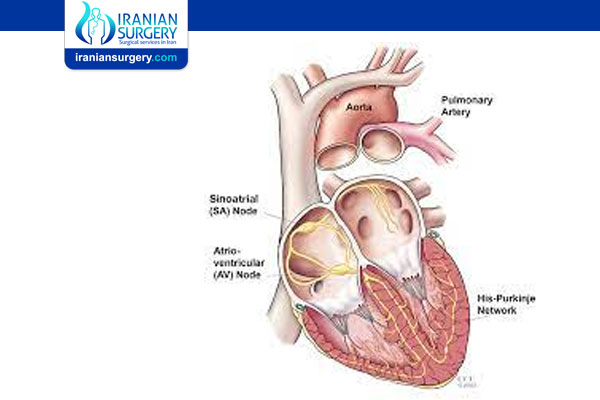1How serious is a heart arrhythmia?
An arrhythmia describes an irregular heartbeat - the heart may beat too fast, too slowly, too early, or irregularly. ... Many heart arrhythmias are harmless; however, if they are particularly abnormal, or result from a weak or damaged heart, arrhythmias can cause serious and even potentially fatal symptoms.
2Can a heart arrhythmia kill you?
The heart rate may be too slow or too fast; it may stay steady or become chaotic (irregular and disorganized). Some arrhythmias are very dangerous and cause sudden cardiac death, while others may be bothersome but not life threatening. ... They can result in a stroke or heart attack, which can be devastating
3Can heart arrhythmia go away on its own?
If an irregular rhythm, or atrial fibrillation, is triggered by an OTC preparation, it may persist for some period of time. But generally, it goes away on its own.
4What happens if arrhythmia is left untreated?
If left untreated, VT may increase your risk of developing more serious ventricular arrhythmias, such as ventricular fibrillation (VF). Ventricular fibrillation: VF may have signs such as sudden, rapid, irregular, and chaotic heartbeats in the ventricle. ... VF is the number one cause of sudden cardiac arrest
5Is exercise good for irregular heartbeat?
Exercise May Help Control Irregular Heartbeat. MONDAY, Aug. 24, 2015 (HealthDay News) -- Exercise appears to help control an irregular heartbeat known as atrial fibrillation in obese people, a new study finds
6How do you fix a heart arrhythmia?
If you have atrial fibrillation, your doctor may prescribe blood-thinning medications to help keep dangerous blood clots from forming. Cardioversion. If you have a certain type of arrhythmia, such as atrial fibrillation, your doctor may use cardioversion, which can be conducted as a procedure or by using medications
7Can a person die for no reason?
Every year about one in 100,000 people aged between one and 35 dies suddenly of a natural cause. The vast majority of sudden death cases in the young are caused by diseases of the heart. ... Most of these are inherited conditions, so relatives of the dead person may carry the same condition
8Is sudden death painful?
Sudden death isn't always so sudden. Chest pain, shortness of breath, and other common heart attack warning signs often precede sudden cardiac arrests. ... A whopping 20% of all deaths in the United States each year are due to a sudden cardiac arrest; barely 5% of people who have one survive
9What are the 5 lethal cardiac rhythms?
The four lethal dysrhythmias are ventricular tachycardia, ventricular fibrillation, torsades de pointes, and asystole. These can be seen on heart monitors such as holter monitors, event recorders, pacemakers, implantable cardiac defibrillators, electrocardiograms, and bedside heart monitors.
10Can anxiety cause arrhythmias?
We're learning that anxiety can tax the heart. Specifically, high anxiety levels can cause an irregular heart beat and it's a vicious cycle, as the more arrhythmia you have – it makes you more anxious



2 Comments
Why heart arrhythmias cause death?
the most common life-threatening arrhythmia is ventricular fibrillation, which is an erratic, disorganized firing of impulses from the ventricles (the heart’s lower chambers). When this occurs, the heart is unable to pump blood and death will occur within minutes, if left untreated.